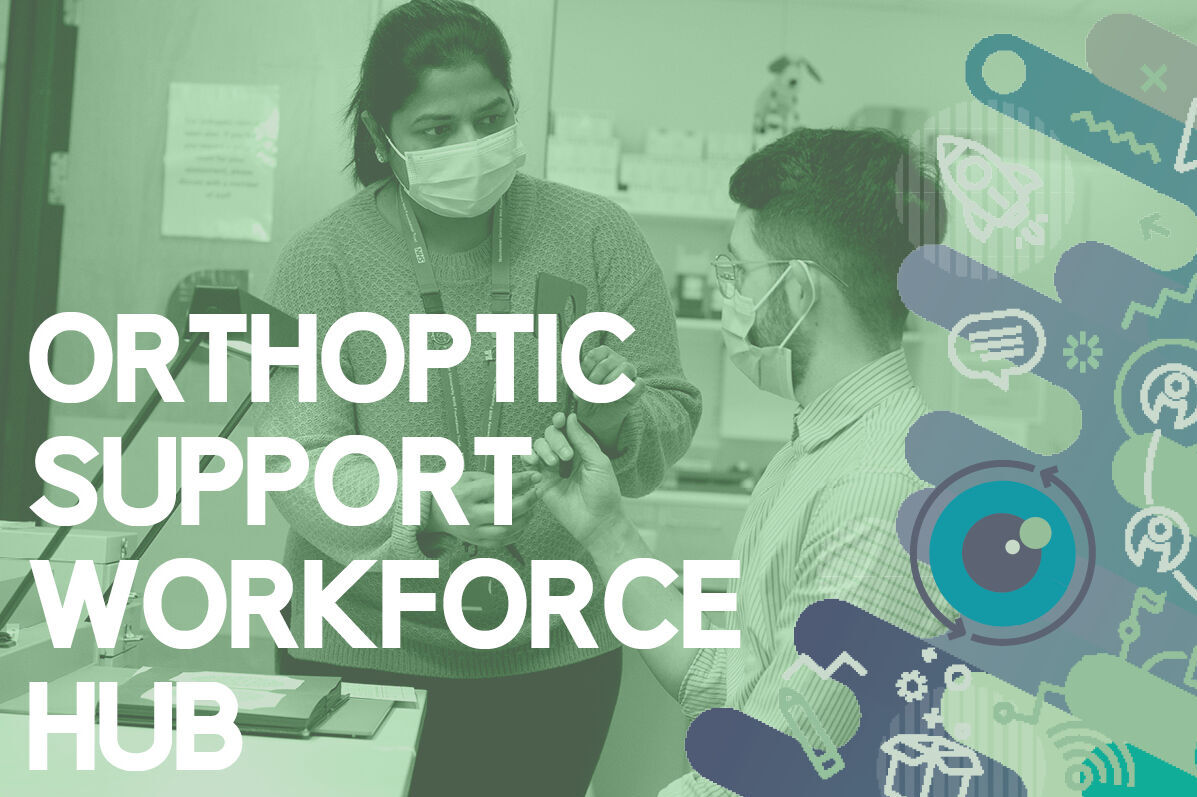Our vision is for all orthoptic staff wherever they work to feel valued, integrated into teams, able to work fully to their potential; with access to lifelong learning including relevant formal qualifications.
We wish employment in the clinical support workforce to be seen as a career that is valued and valuable. Moreover, whether staff wish to pursue their careers in the clinical support workforce or progress onto registered grades we want to ensure they have rewarding careers and are clear how they can develop, accessing the support they need.
The support workforce is an integral part of the orthoptic clinical team.
Read our full vision statement here.
The Project
In 2020 at a dedicated conference focused on this important group of staff, BIOS began a programme of work dedicated to addressing their needs that continues too today. Central to this work has been ensuring we listen to the views of our support workforce about their needs, challenges and aspirations, as well as their registered colleagues and managers.
Over the last three years, BIOS has launched a support workforce hub, that includes a number of resources such as a Roles and Responsibilities Guide, which aims to clarify the tasks that support staff can perform at all levels of practice and some example competency frameworks for use in delegation of tasks.
This work continues with an exciting new programme that will run until April 2025, the main objective of which is to identify and produce the resources, support, information and guidance that Orthoptic services require, to allow them to realise the potential of the national BIOS resources.
Overseen by a profession led Expert Group, that includes support workers, the project aims to –
- Assist full implementation of the BIOS Roles and Responsibilities Guide and related resources by working with services to:
a. Capture the changes in task allocation and scope of practice that arise
b. Identify any gaps in the Guide or further guidance required
c. Consider education needs to ensure staff have the necessary knowledge, skills, and behaviours to undertake task - Raise awareness, nationally, of the support workforce resources and the benefits of implementing them
- Define and model new recruitment pathways into orthoptic support worker entry roles and pre-registration degrees and the new Degree Apprenticeship
If you would like to find out more about the project, please contact [email protected]
Latest Updates
Support Worker Webinar – Assessing vision at all ages – 24th June 2025
Support Worker Webinar - Assessing vision at all ages - 24th June 2025
New guide to Local Recruitment Pathways for Orthoptic Clinical Assistants
We've published a new guide to local recruitment pathways for orthoptic clinical assistants (OCAs), as part of our ongoing work to raise awareness [...]
BIOS launch new careers resources for National AHP Support Workforce Week
This week is AHP Support Worker Week, a chance to shine the spotlight on, and highlight, our fabulous Orthoptic and Ophthalmic Support Workforce. [...]
Resources and Further Information
Health Education England (HEE):

